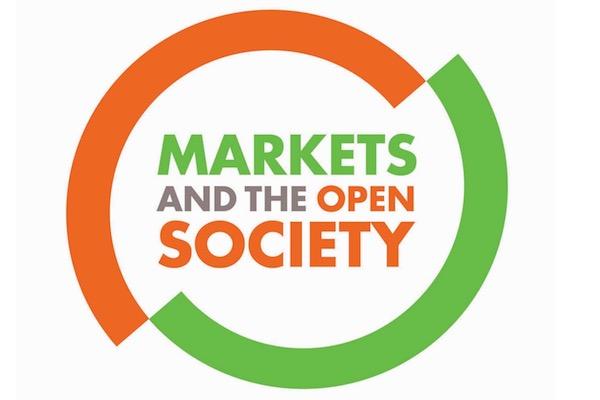
Event Overview
In recent years the idea of the open society has been attacked from both sides of the political spectrum. This conference will explore the qualities that constitute a society as “open” and consider some of the challenges, new and old, that open societies face. How is the value of “openness” related to other important values like equality, justice and toleration? How do freedoms of association, expression and exchange reinforce or undermine one another? How has the emergence of new technologies and new social and political movements promoted or hindered the aims of the open society?
A livestream of the event via Zoom will also be available. Registration is required to join the livestream; register here. Registration is not required for the in-person event.
This conference is part of the 2021-22 COMPAS Program on Markets and the Open Society.
Please contact CEHV Associate Director Kate McFarland (mcfarland.309@osu.edu) if you require any accommodations to participate in this event.
Panel 1: What's Open about the Open Society?
9:00-10:30 AM
Panelists
Allison Stanger (International Politics and Economics, Middlebury College)
Michael Fuerstein (Philosophy, St. Olaf College)
Moderator: Piers Turner (Philosophy, OSU)
Panel 2: How Open is the Internet? Democracy and Social Media
11:00 AM-12:30 PM
Panelists
Jennifer Forestal (Political Science, Loyola University Chicago)
Michael Neblo (Political Science, OSU)
Moderator: Dennis Hirsch (Law, OSU)
About the Panelists
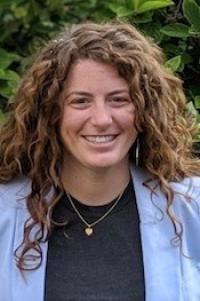
Jennifer Forestal (Political Science, Loyola University Chicago)
Jennifer Forestal is the Helen Houlahan Rigali Assistant Professor of Political Science at Loyola University Chicago. She received her PhD in Political Science from Northwestern University and BA in Political Science and Comparative Cultural Studies from The Ohio State University.
Professor Forestal's research draws from the history of political thought, particularly in the American tradition, to investigate the consequences of digital technologies for democratic practices. Her work has appeared in outlets like the American Political Science Review, Journal of Politics, Hypatia, and The Washington Post.
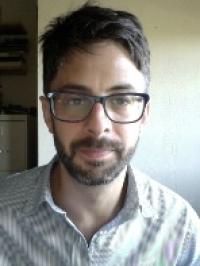
Michael Fuerstein (Philosophy, St. Olaf College)
Michael Fuerstein is an Associate Professor in the Department of Philosophy at St. Olaf College in Northfield, Minnesota. His work focuses on epistemological issues that arise in political, social, and scientific contexts. He also has research interests in American Pragmatism, particularly the work of John Dewey, and in the moral and social dimensions of business. Fuerstein is an inaugural member of the Society for Progress.
Professor Fuerstein received his PhD from the Columbia Department of Philosophy and was a Postdoctoral Fellow at Rutgers University’s Center for Cultural Analysis. He was also a Visiting Scholar at the INSEAD Business School in Fontainebleau, France. Fuerstein is also an active saxophonist and a drummer in The Counterfactuals.
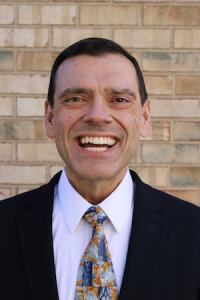
Michael Neblo (Political Science, OSU)
Michael Neblo is a professor of Political Science and (by courtesy) Philosophy, Communication, and Public Policy at Ohio State, as well as the founding director of the Institute for Democratic Engagement and Accountability (IDEA). He is also a member of the Advisory Board for the Center for Ethics and Human Values and serves on the board of directors for the National Issues Forum Institute.
Professor Neblo's research focuses on deliberative democracy and political psychology. His most recent book, Politics with the People: Building a Directly Representative Democracy (with Kevin Esterling and David Lazer), develops and tests a new model of politics connecting citizens and elected officials to improve representative government. Neblo was invited to testify before Congress about these findings. His first book, Deliberative Democracy between Theory and Practice, cuts across the deadlock between supporters of deliberative theory and their empirical critics by focusing on the core goals of the larger deliberative political system.
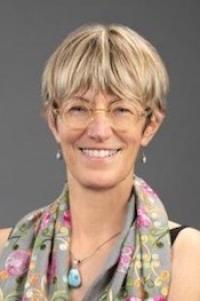
Allison Stanger (International Politics and Economics, Middlebury College)
Allison Stanger is Russell Leng ’60 Professor of International Politics and Economics at Middlebury College; 2021-22 Research Affiliate (co-lead, Theory of AI Practice Initiative) at the Center for Advanced Study in the Behavioral Sciences, Stanford University; an External Professor and Science Board member at the Santa Fe Institute; and a Senior Advisor to the Hannah Arendt Humanities Network. In 2020-2021, she held the Cary and Ann Maguire Chair in Ethics and American History at the Library of Congress.
Professor Stanger is the author of Whistleblowers: Honesty in America from Washington to Trump (Chinese edition to appear in September 2022) and One Nation Under Contract: The Outsourcing of American Power and the Future of Foreign Policy, both with Yale University Press. She is the co-editor (with W. Brian Arthur and Eric Beinhocker) of Complexity Economics (SFI Press). Stanger’s writing has appeared in The Atlantic, Foreign Affairs, Foreign Policy, Financial Times, International Herald Tribune, New York Times, USA Today, and the Washington Post. She has been called to testify before Congress on five occasions and is a life member of the Council on Foreign Relations. Stanger received her Ph.D. in Political Science from Harvard University.
